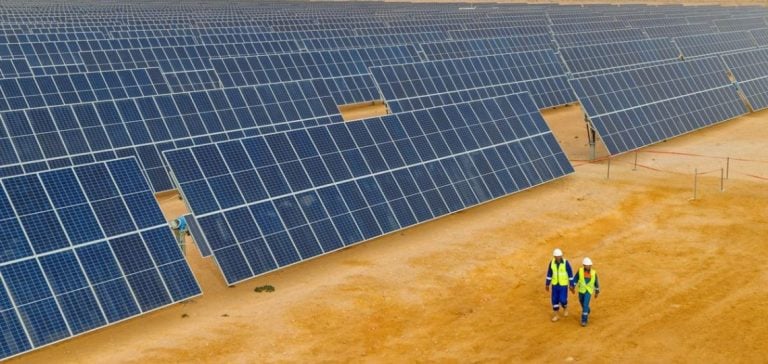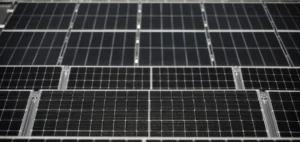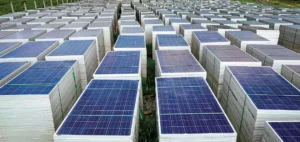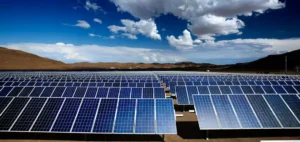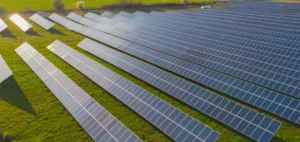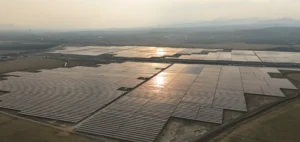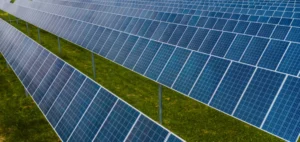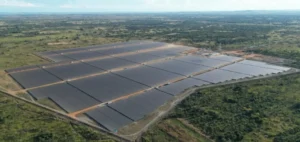Tunisia is stepping up the development of its energy infrastructure with the signing of two new agreements for the construction of solar power plants in Sidi Bouzid and Tozeur. These partnerships are part of the country’s long-term energy strategy, which aims to diversify its sources of electricity supply and reduce its dependence on fossil fuel imports.
The two photovoltaic power plants, each with a capacity of 50 megawatts, will be built in collaboration with the Norwegian company Scatec and the Japanese company Aeolus.
Commissioning is scheduled for next year, in line with Tunisia’s objectives to increase the share of renewable energies in its energy mix.
Total financing amounts to 79 million euros, covering all the facilities and infrastructure required for their implementation.
A structuring project for energy independence
These projects are part of a wider drive by the Tunisian government to improve its energy independence in the face of ever-increasing consumption.
Since 2010, Tunisia’s energy dependence has grown considerably.
It has risen from 5% to 50% of national consumption by 2022, according to World Bank figures.
This situation makes it necessary to accelerate investment in renewable energy sources, in particular to compensate for declining production of local oil and gas resources.
Tunisia’s energy strategy aims to achieve 35% of electricity production from renewable sources by 2030, and to further reduce this dependence on fossil fuels by 2050.
The Sidi Bouzid and Tozeur projects are part of a larger project comprising the Kairouan and Gafsa power plants, each with a capacity of 100 megawatts, and the Tataouine plant, which will have a capacity of 200 megawatts.
Economic and industrial outlook
The installation of these solar infrastructures in Tunisia should have a significant economic impact.
In addition to boosting the country’s electricity production capacity, these projects offer industrial opportunities and jobs, particularly during the construction phase.
They also represent an important step in the development of Tunisia’s renewable energy sector, positioning the country as a potential regional player in this sector.
Financing for these plants is largely provided by foreign partners.
The involvement of Scatec and Aeolus in these projects bears witness to the interest of international investors in Tunisia’s energy potential.
In the longer term, the success of these initiatives could encourage new collaborations, particularly with other international players in the energy sector.
Challenges in meeting the 2030 targets
Despite this progress, major challenges remain for Tunisia.
One of the main obstacles is the country’s ability to rapidly develop infrastructure capable of meeting growing demand.
The energy transition process also requires regulatory and economic adjustments to facilitate the integration of renewable energies into the national grid.
In addition, improving energy efficiency remains crucial to the success of the 2030 objectives.
This calls for sectoral reforms, as well as better coordination between public and private players.
The implementation of solar projects, such as those in Sidi Bouzid and Tozeur, therefore represents a crucial step in this transition, but further efforts will be needed to achieve the targets set.

